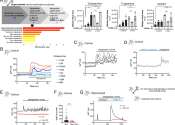Putting the brakes on heroin relapse
Neuroscientists from the Medical University of South Carolina (MUSC) report in Science Advances that star-shaped brain cells known as astrocytes can "turn off" neurons involved in relapse to heroin. Drug-related cues in the ...
Oct 5, 2022
0
78






